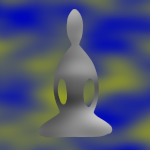January 25 – Meditation: Supports for Establishing Mindfulness
Dear Friends, This guided meditation from Andrea Fella brings in a phrase from the Satipatthana Sutta: “Mindfulness that ‘there is a body’ is established in one to the extent necessary for bare knowledge and continuous mindfulness.” (MN 10) Guided Meditation: Supports for Establishing Mindfulness, by Andrea Fella (19 minutes – no ending bell):https://www.audiodharma.org/talks/11650 With good wishes,Andrea
